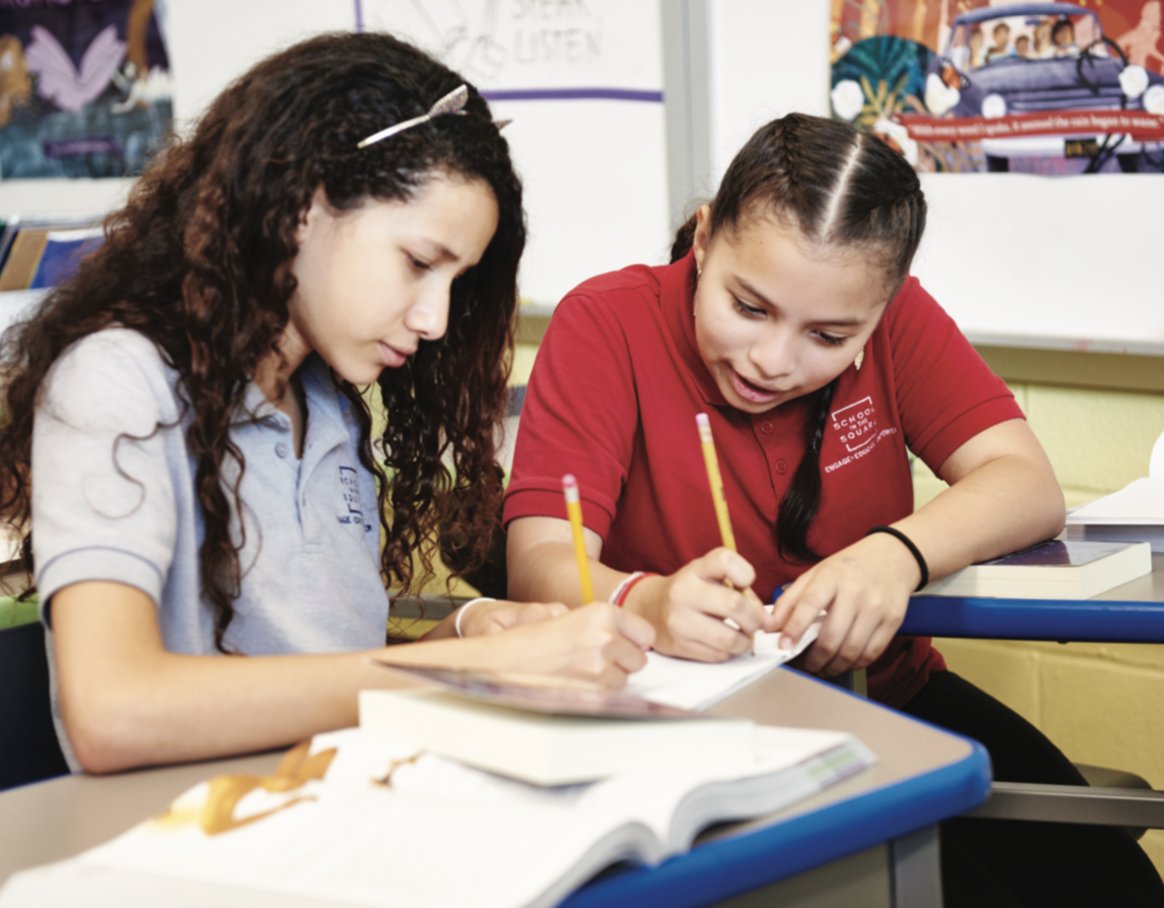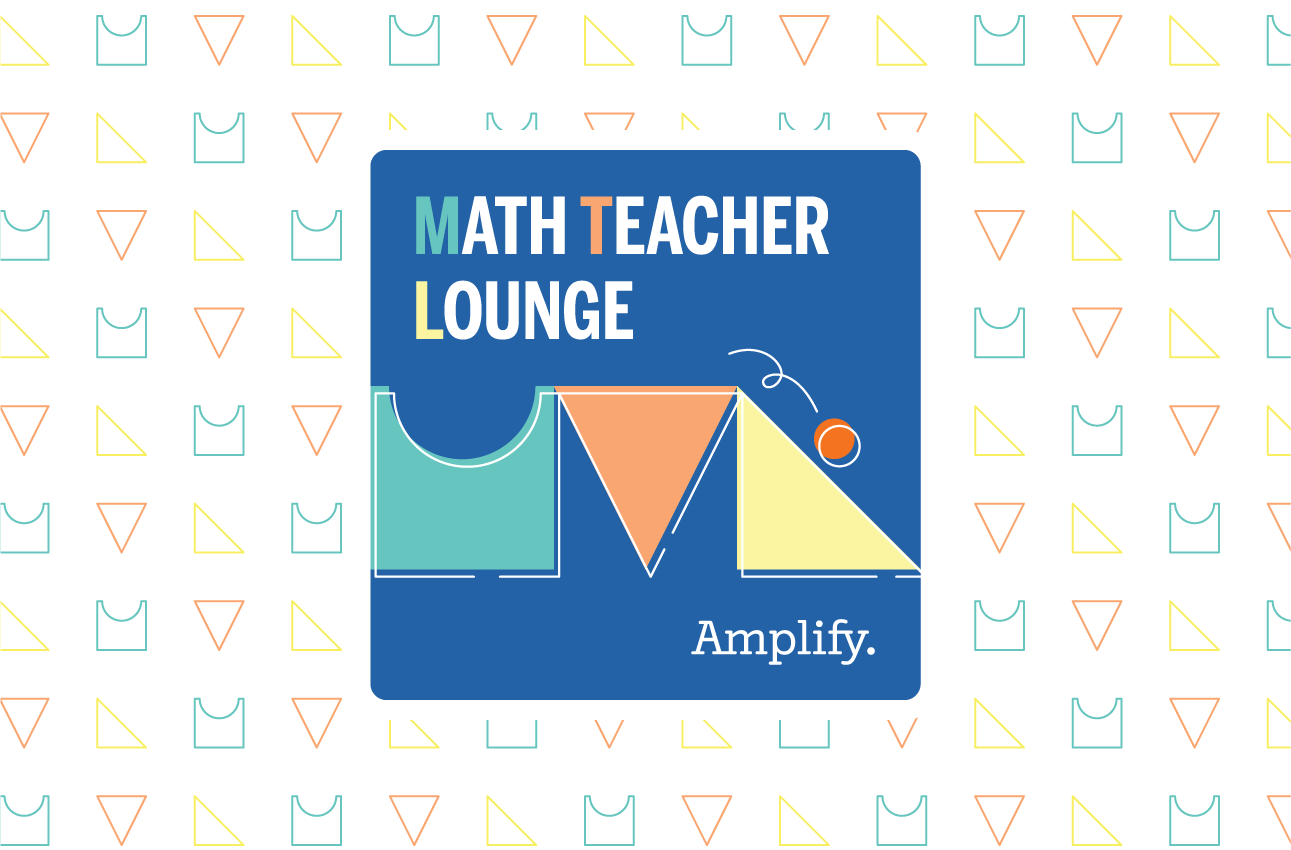
Mark your calendars: Amplify will be at the National Council of Supervisors of Mathematics (NCSM) conference in Anaheim, California, and the National Council of Teachers of Mathematics (NCTM) conference in Los Angeles this September.
is scheduled for Sept. 26–28, 2022, and for Sept. 28–Oct. 1, 2022.
Please visit our booths (NCSM: 404, NCTM: 117) and attend our sessions to learn about and discuss a wide range of topics—from using new technology in math education and stopping math anxiety, to cultivating mindfulness (and even “romance”) in math.
You’ll get the answers to questions like “What does problem-based learning look like” and the oft-repeated “What’s the point of mathematics?”
And you’ll come away with new tools for engaging and bringing out the math brilliance in all learners, while supporting teachers in thriving along with their students.
Our presentations at NCSM
We’ll start Monday, Sept. 26, with sessions designed to help educators reimagine math education and their role in delivering it.
Imagining the Future of Mathematics Education Through Student Learning Experiences in Desmos Classroom: In this session, we’ll explore how can make visual patterns come to life, connect mathematical representations, and deliver meaningful learning experiences that value student input.
From Surviving to Thriving: Making a Case for Taking on Leadership Roles as a Teacher: How do we transition from surviving to thriving in education? The answer might lie in forging a path to leadership inspired by what motivates you most.
100 Years of Love: Why Romance Has Historically Been The Most Critical Stage in Mathematical Pedagogy: We’ll explore how a framework from a visionary 1929 book on education can guide us in helping kids fall in love with math.
On Tuesday, we’ll explore how using virtual manipulatives can help students connect to complex interactions in ways that are not possible in the physical world.
Helping Math Leaders Leverage the Power and Possibilities of Using Virtual Manipulatives to Engage Students in Mathematical Exploration and Discovery: Learn how manipulatives can transform how students make meaning of important ideas by making abstract relationships visible, teaching creativity and problem-solving, and encouraging exploration and discovery.
And on Wednesday, we’ll look at how to both drive structural change toward equality and build actual math structures that delight and inspire!
Putting Research Into Action: One District’s Journey Toward Implementing Recommendations From Catalyzing Change: Join us as we share our actions and long-term goals for adjusting structures and practices within our district, such as addressing roadblocks, engaging stakeholders, shifting teacher and student mindsets, and facilitating difficult conversations with the goal of removing barriers for all students.
Public Math Pop-Up: Build Your Own Math Installation: In this session, we will dream up, design, and install temporary place-based math provocations.
Our presentations at NCTM
We’ll start Thursday, Sept. 29, with nine sessions designed to help math educators use math technology (and more) to meet their students where they are in order to unlock and celebrate their brilliance. Sessions include:
What Does Problem-Based Learning Unlock for Students? Learn how problem-based math instruction helps teachers set the stage for memorable learning experiences and transfer the responsibility for the learning to students.
Engaging All Learners in Doing Mathematics: If we believe that learning mathematics is social, then we need to provide tasks that allow for discussions among students. Learn how to select these tasks and ask great questions.
Leveraging the Brilliance in Student Work to Extend Learning for Each and Every Student: To engage in equitable assessment, we must look for the brilliance in student work and identify and build on the funds of knowledge they bring to our classrooms. Explore ways to leverage each student’s work to cultivate their math identities.
What’s the Point of Mathematics? While making every student learn mathematics can be useful for other subjects such as science and engineering, its real value lies in cultivating skills like creativity, problem-solving, critical thinking, and logical reasoning. In this talk, we will explore how these skills can be brought into more classrooms, and how our curriculum needs change to be more relevant to what students need.
Metaphors in Mathematics: This session will introduce the role that metaphor plays in design, then apply those principles to math education.
The REAL Real World: From Problems to Scenarios: Real-world problems anchor students’ conceptual understanding to the world that surrounds them. In this session, you will learn how to alter your existing curriculum to incorporate such relatable, relevant problems.
On Friday, we’ll deliver three sessions that remind us of the importance of face-to-face interaction and collaboration for math and more.
Lab Classrooms: Creating a Space for Immersive Learning in, from, and for Practice: Learn how to create laboratory spaces that provide opportunities for collaborative planning, teaching, and real-time coaching.
Live podcast recording of Math Teacher Lounge: Join co-hosts Bethany Lockhart Johnson and Dan Meyer for a live session full of special guests, games, and giveaways, plus their take on some of math education and NCTM’s toughest questions.
Math Versus Mathematics: Using Desmos to Honor Student Thinking and Value Student Input: In this session, we’ll explore how Desmos can make visual patterns come to life, connect mathematical representations, and deliver meaningful learning experiences in which student input is valued.
And on Saturday we wrap up with five sessions designed to help educators maximize equity and engagement. Highlights include:
Math Without Mistakes: Despite efforts, the math education community continues to diagnose as diagnose as “mistakes” what are actually examples of purposeful student thinking.
But the Data Doesn’t Show That! How to Encourage Data Literacy in Young Learners: Using real-world data and example student tasks, we will engage in discussion about how to create rich lessons that deepen student understanding of data while guiding them to be critical consumers of information.
Digital Makerspace: Fostering Students’ Mathematical Agency and Creativity: Participants will engage with makerspace activities that have been developed as part of a digital supplemental mathematics curriculum to provide robust learning experiences for students.
.
.
​​How Amplify Math can help teachers
We started with a world-class problem-based curriculum (Illustrative Mathematics’® IM ¹ú²úÈý¼¶Æ¬“12 Mathâ„¢) and made changes to help educators implement engaging problem-based core curriculum for students. Amplify Math helps shift to planning and teaching problem-based lessons, tracking student progress, and differentiating instruction based on real-time data. We’ve made the math problems more exciting and relevant for all students, thus making it easier for all students to become active participants in their learning.



